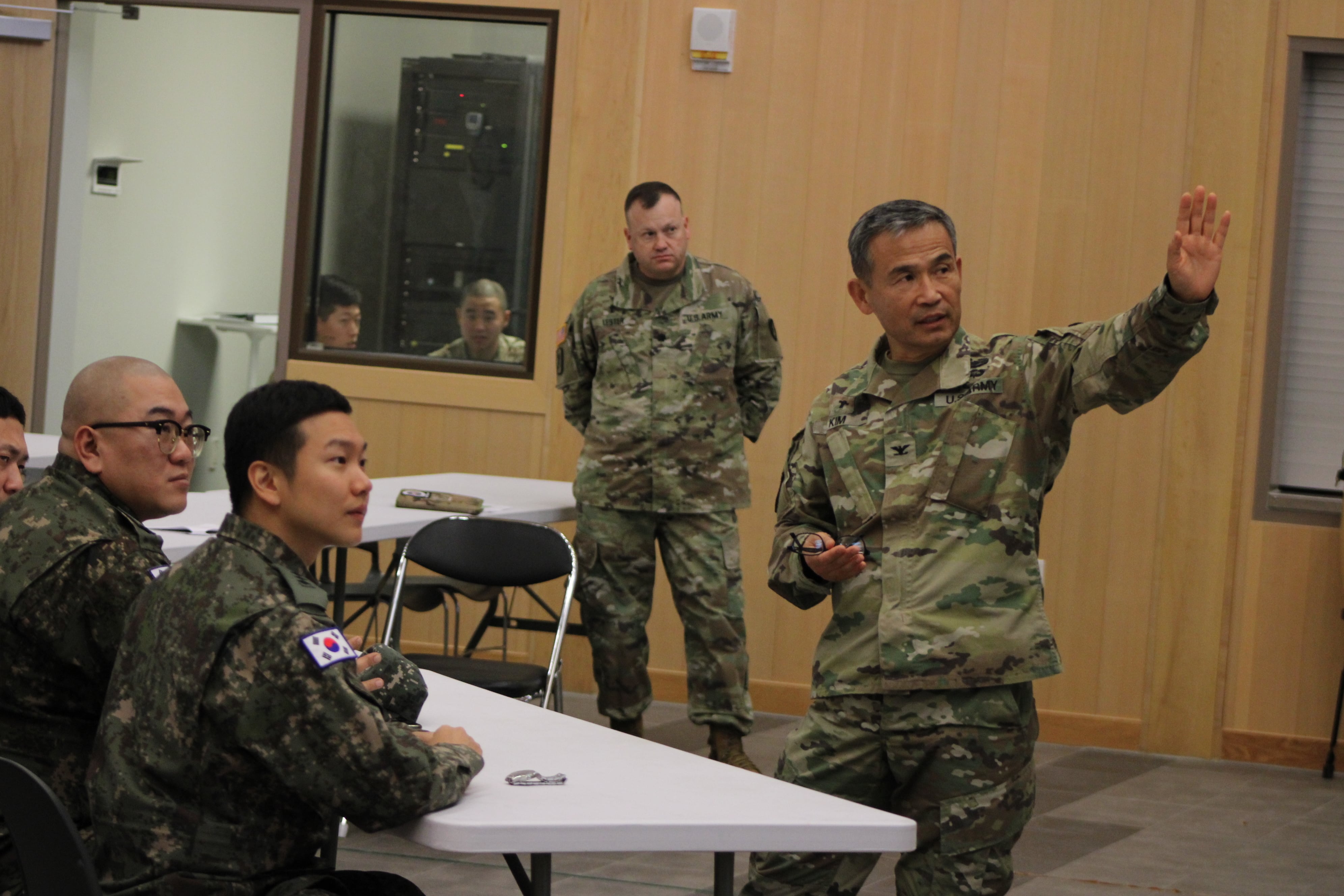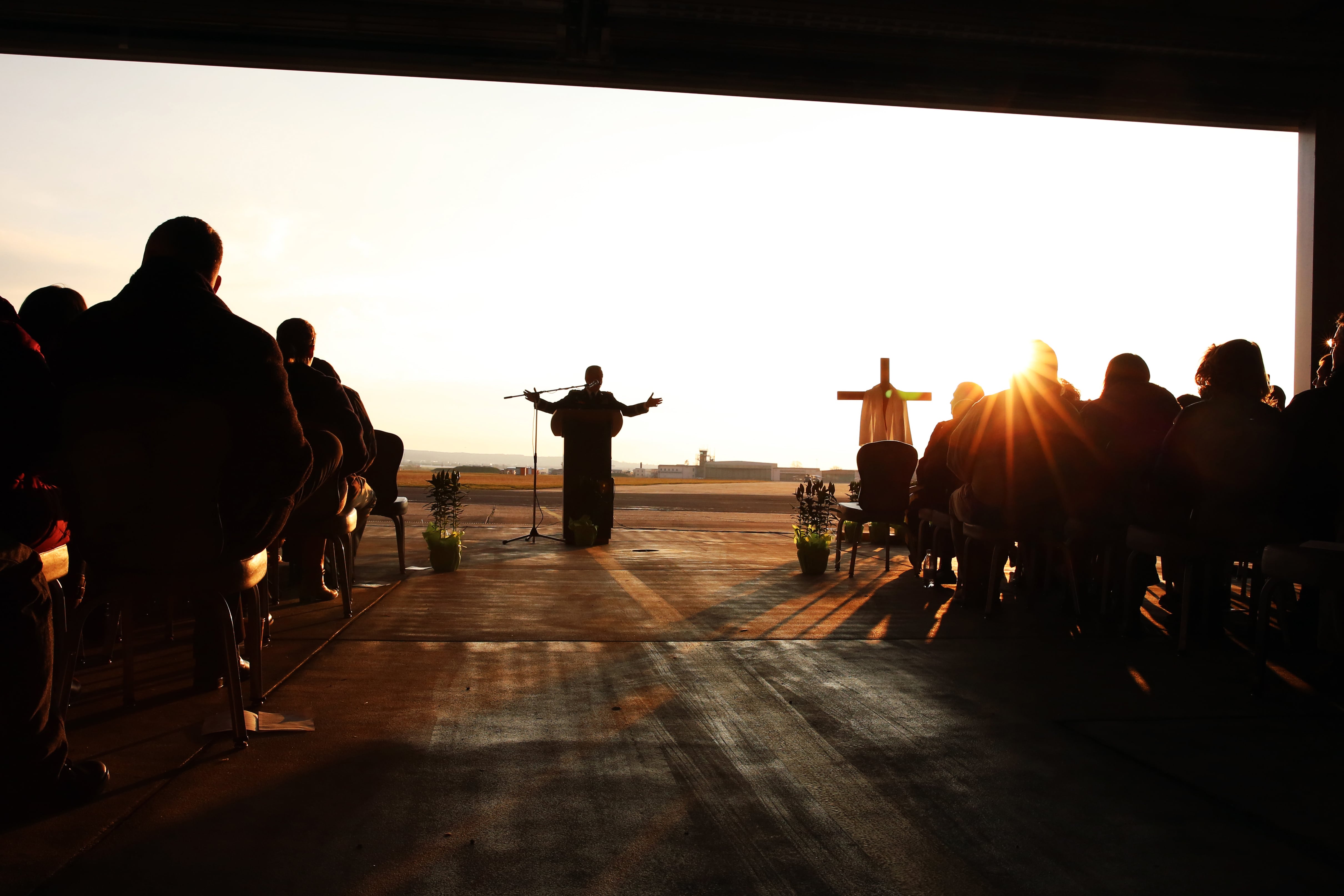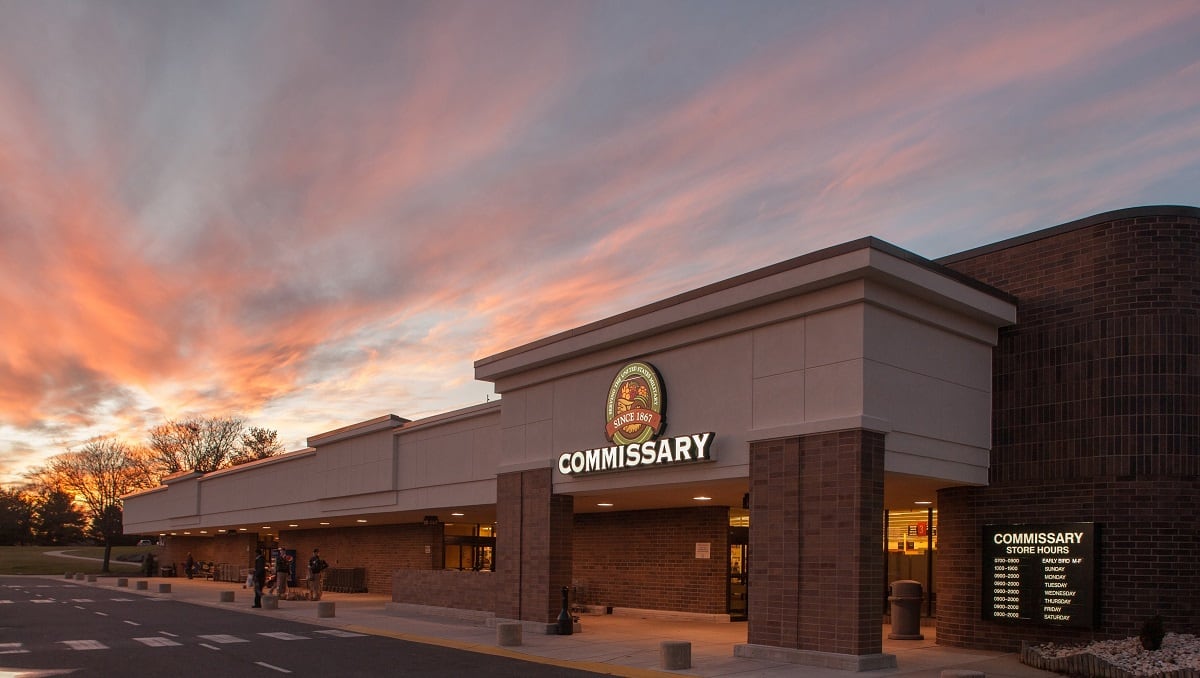Twenty lawmakers are asking that the Department of the Defense stop appeasing “anti-religion activists," citing recent complaints made by an advocacy group amid the coronavirus pandemic that were met with corrective actions by base commanders in two cases and an investigation in the third.
Reps. Doug Collins, R-Ga., and Doug Lamborn, R-Colo., led 18 of their Republican colleagues in sending a letter Thursday to Defense Secretary Mark Esper, copying Army Secretary Ryan McCarthy, urging them to protect religious liberty and “ensure that the ongoing pandemic is not exploited by nefarious organizations bent on removing faith from the U.S. military.”
The Military Religious Freedom Foundation, which originally raised those issues, was prompted by service members’ complaints in each case, some of whom were military chaplains, said Mikey Weinstein, the group’s president.
“The military is agreeing with us every time because we lay out the legal and regulatory structure as to why they must do so,” Weinstein told Army Times.
Collins, who serves as a chaplain in the Air Force Reserve, said Weinstein’s foundation “has exploited the current pandemic in an effort to ruin the careers of the hardworking men and women who serve as military chaplains.”
The lawmakers’ letter cited three complaints raised in recent weeks by Weinstein’s foundation. One took issue with a senior Army chaplain in South Korea who used military email to send 35 subordinates copies of a book that described the coronavirus as part of God’s punishment for sinful actions. That case is under investigation, Army officials previously said.
A second complaint was raised by the foundation against military chaplains at Fort Drum, New York, and Redstone Arsenal, Alabama, who shared faith-based videos on Army social media pages. Those videos were later removed.
The third complaint was against an Air Force lieutenant colonel at Kelley Barracks in Stuttgart, Germany, who was hosting “Sunday Christian porch preaching” on the balcony of his apartment building. That officer has since moved his preaching sessions outside the military residential complex, according to Weinstein, which his foundation believes to be a more appropriate venue.
RELATED

Sometimes, those complaints were raised by Christian service members, Weinstein said. In the case of the senior Army chaplain in South Korea, he noted that he was representing nearly two dozen Christian military chaplains from multiple services. Two of those chaplain officers previously told Army Times that using government email to distribute the book was inappropriate and risks alienating junior chaplains who practice more relaxed theologies.
“All three of these distinct issues highlight the overwhelmingly critical imperative to emphasize to all members of the military (not just chaplains) the need to consider the lawful and appropriate time, place, and manner in which protected religious activity is exercised,” Weinstein’s foundation said in a response to the lawmakers’ letter.
Mike Berry, general counsel for First Liberty Institute, a legal organization often at odds with Weinstein’s foundation, disagreed. Esper needs to take a clear stance on the issue of religious liberty for service members, according to Berry. First Liberty also penned a letter to Esper’s office on Thursday.
“It’s outrageous that chaplains who are helping our service members, veterans, and their families through this extraordinarily difficult time are being silenced by an anti-religion group and their bogus legal claims,” Berry said in a statement.
Provisions were included in the 2013 and 2014 National Defense Authorization Acts aimed at protecting religious liberty rights of troops, including military chaplains, the lawmakers stated. Those provisions protect the expression of religious beliefs in the military unless those beliefs could have an adverse impact on readiness, cohesion, good order and discipline.
In their letter, the lawmakers cited 2018 congressional mandates directing the Pentagon to implement a comprehensive training program in consultation with chaplains and judge advocates to ensure proper handling of these types of situations. Lawmakers said they’re urging the military to “complete the establishment of this training” and offer it to all troops.
They also urged the Pentagon leaders to review and apply the “Attorney General’s Memorandum on Religious Liberty” and issue prompt guidance in accordance with that memorandum to commands, chaplains and judge advocates concerning how religious freedom issues should be addressed during the pandemic.
“We are growing frustrated as senior military leaders, often out of ignorance, continue to violate the religious liberty and clearly expressed, explicit intent of Congress when it comes to chaplains,” the lawmakers’ letter reads. “Far too often, commanders react in a knee-jerk fashion to loud complaints from vocal anti-religion activists.”
Kyle Rempfer was an editor and reporter who has covered combat operations, criminal cases, foreign military assistance and training accidents. Before entering journalism, Kyle served in U.S. Air Force Special Tactics and deployed in 2014 to Paktika Province, Afghanistan, and Baghdad, Iraq.





